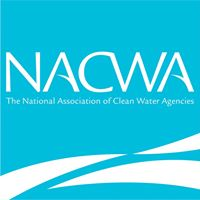Municipal Clean Water Utilities Find Plenty to Support in Newly-Passed Omnibus Spending Bill
Washington, DC – (RealEstateRama) — The National Association of Clean Water Agencies (NACWA) applauds Congress and the Trump Administration on the Omnibus spending bill passed today to keep the Federal Government funded through September, as it includes funding for several of the public clean water sector’s most important priorities.

NACWA finds that several of the investment priorities of its membership—which includes public clean water utilities throughout the US, representing millions of consumers—are supported through maintained funding levels (from the previous year’s budget), and on some priorities, investment has even increased.
“Considering the significant FY18 cuts which had been proposed for EPA by the Trump Administration and supported by some in Congress, the near-level support for EPA through the second half of FY17 is a positive sign for clean water funding as legislators and water stakeholders move toward FY18 negotiations” says Adam Krantz, CEO of NACWA. “We need to build on this agreement as a model for the FY18 budget to ensure that critical municipal clean water priorities are funded for next year as well.”
Specifically, the Omnibus bill provides:
- $1.394 B for the Clean Water State Revolving Fund (equal to FY16)
- $171 M for nonpoint source control grants (increase of $6 M)
- $231 M for state clean water grants (equal).
- $34.4 M for Title XVI Water Reclamation & Reuse Program (significant increase)
The Omnibus also funds EPA geographic programs at or above FY16 levels:
- $300 M for the Great Lakes Restoration Initiative (equal to FY16)
- $73 M for the Chesapeake Bay Program (equal)
- $8 M for Long Island Sound Programs (nearly doubled)
- $8 M for Gulf of Mexico Programs (nearly doubled)
Other Issues
The Omnibus bill also strongly supports integrated planning efforts and urges EPA to work with communities to develop integrated plans. Additionally, it includes a directive to EPA related to the Great Lakes CSO notification requirement that originally arose in the FY16 bill. The Omnibus includes language reminding EPA that the CSO notification language was to be specifically limited to the Great Lakes for purposes of public notice requirements, and did not require immediate notice. The bill recommends EPA give utilities flexibility, to ensure that ratepayers are not severely impacted by the cost of implementing the CSO public notice requirement.
###
ABOUT NACWA
For more than forty years, the National Association of Clean Water Agencies (NACWA) is the nation’s recognized leader in regulatory, legislative and legal advocacy on the full spectrum of clean water issues. NACWA represents public clean water agencies of all sizes nationwide. Our vision is to represent every utility as a NACWA member, helping to build a strong and sustainable clean water future.
Media Contact
Tony Viardo | NACWA
(202) 533-1810 | (202) 258-8287 (mbl)
"> | www.nacwa.org













